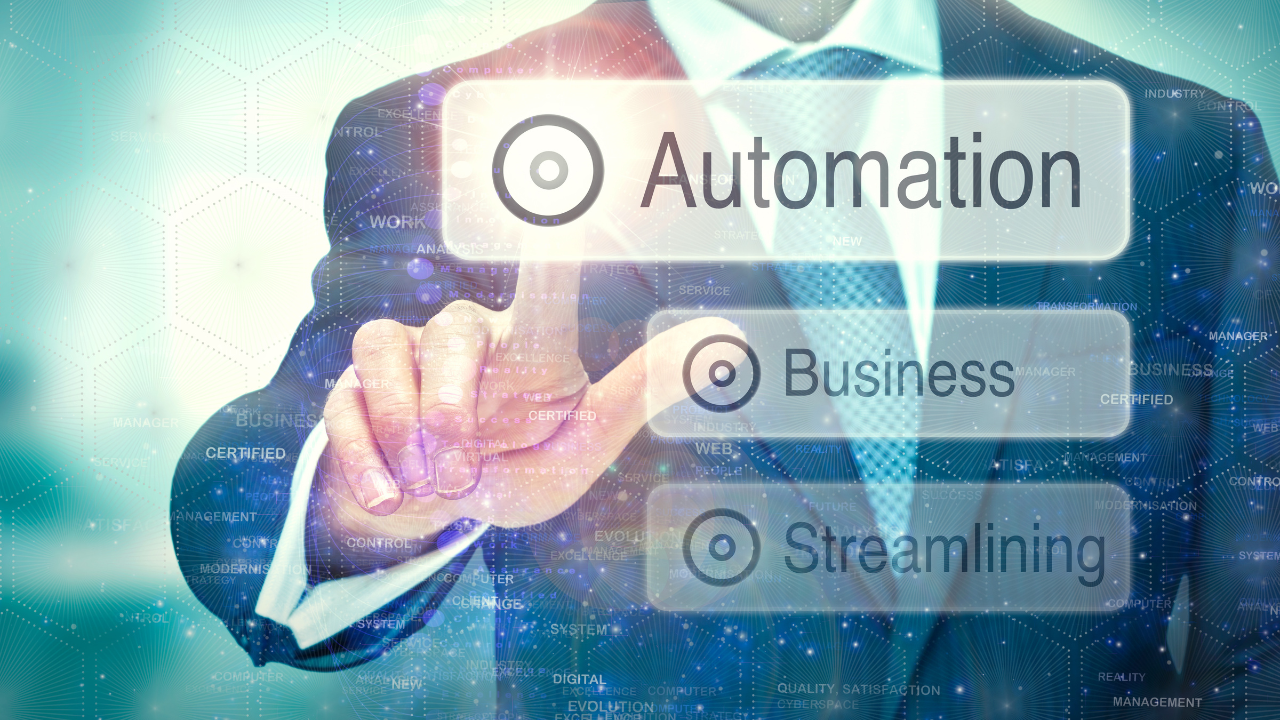
Transforming Legacy Systems: 3 Powerful Paths to Modernisation for Enhanced Performance and Efficiency
Legacy systems refer to outdated software and hardware that were once industry-standard but have since been surpassed by more advanced technologies. While these systems may have served businesses well in the past, they often present significant challenges today. Modernising legacy systems is essential for businesses to keep pace with technological advancements, improve efficiency, and maintain a competitive edge.
Devision’s approach to Legacy Software Modernisation involves assessing existing systems, understanding business needs, and implementing solutions that bring agility, cost savings, and an enhanced user experience. By transitioning from old systems to more modern and flexible solutions, businesses can achieve increased performance and prepare for future growth. Our modernisation strategies aim to optimise current processes and pave the way for innovative developments.
The Imperative for Modernisation
Maintaining legacy systems can be a costly endeavour for businesses. These systems often require extensive maintenance and support, leading to high operational costs. Additionally, their outdated architecture can introduce security vulnerabilities, posing risks to sensitive data and compliance with regulatory requirements. Furthermore, legacy systems typically lack scalability, hindering a business’s ability to grow and adapt to changing market demands.

Modernising legacy systems is critical for businesses to stay competitive in the digital age. By upgrading to modern technologies, organisations can improve operational efficiency, reduce costs, and enhance security measures. Modern systems also offer the scalability needed to support business expansion and integrate emerging technologies such as AI and cloud computing. Embracing modernization allows businesses to innovate, provide better customer experiences, and position themselves for long-term success.
In conclusion, transforming legacy systems is a strategic move for businesses aiming to thrive in today’s rapidly evolving digital landscape. By partnering with experts in legacy software modernisation, organisations can ensure a smooth transition to modern technologies, enhancing performance and efficiency while unlocking new opportunities for growth.
Devision’s Approach to Legacy Software Modernisation
Devision’s legacy software modernisation process is a comprehensive approach that begins with a thorough assessment of existing systems to identify areas for improvement and opportunities for modernisation. This involves understanding the current state of the software, its limitations, and the business objectives that modernisation should support. With this information, Devision creates a strategic plan that outlines the modernisation goals and the steps needed to achieve them.
The execution phase involves leveraging advanced technologies, such as cloud computing, microservices architecture, and containerisation, to transform legacy systems into modern, scalable, and resilient solutions. By using these technologies, Devision ensures that the new systems can handle increased workloads, integrate seamlessly with other applications, and remain agile for future updates. Throughout the modernization process, Devision places a strong emphasis on minimising disruptions to daily operations, ensuring a smooth and seamless transition that supports business continuity.
Devision’s proven track record includes successful projects across a variety of industries, demonstrating its ability to deliver tailored solutions that drive tangible results for clients. For example, Devision worked with an educational institution to develop a modern platform that enabled the organisation to expand its offerings and improve the user experience for students and teachers. By leveraging advanced technologies and methodologies, Devision was able to create a robust and innovative solution that not only met but exceeded the client’s expectations.
By focusing on strategic alignment, advanced technologies, and business continuity, Devision’s legacy software modernisation process ensures that clients achieve enhanced performance and efficiency. This approach sets the foundation for long-term success and positions organisations to thrive in today’s dynamic digital landscape.
Benefits of Modernising Legacy Systems
Modernising legacy systems offers numerous benefits to businesses, including improved agility and flexibility. By transitioning to modern technologies, organisations can quickly adapt to changing market conditions and customer demands. This agility allows businesses to seize new opportunities and remain competitive in their respective industries.
Another key benefit is the potential cost savings associated with modernization. By reducing technical debt and maintenance expenses, businesses can allocate resources more efficiently and invest in other areas of growth. Additionally, modern systems are easier to maintain and update, further reducing long-term operational costs.
Modernization also enhances the user experience by providing a more intuitive and efficient interface. As legacy systems often suffer from outdated designs and limited functionality, modernised systems offer improved usability and performance. This can lead to higher customer satisfaction and increased employee productivity, contributing to overall business success.
By working with Devision, businesses gain access to a dedicated team of experts who tailor modernization strategies to their unique needs. Our proven methodologies ensure that the transition is seamless and minimises disruptions. For instance, a recent project involved migrating a client’s entire operations to a cloud-native platform, resulting in a 40% increase in processing speed and a 20% decrease in overall costs.
Another client in the logistics industry experienced a dramatic improvement in supply chain management and customer service after transitioning from a legacy system to a modernised one. This strategic shift allowed them to integrate new features, enhance data analytics capabilities, and optimise delivery routes, leading to a substantial increase in profitability.
In summary, modernising legacy systems is a strategic investment that can yield significant advantages for businesses. By partnering with Devision, organisations can navigate the modernisation process effectively, transforming outdated systems into innovative and high-performing solutions that drive long-term growth and success. With Devision’s expertise, businesses can confidently embark on the path to modernisation, unlocking new potential for a competitive edge in today’s digital landscape.
Trends in Digital Transformation
Digital transformation is reshaping industries across the globe, and its impact on legacy system modernisation is undeniable. As organisations strive to keep pace with rapid technological advancements, several trends have emerged that are changing how legacy systems are modernised.

One key trend is the use of automation, which can streamline processes and increase efficiency in modernising legacy systems. Automation tools can identify and fix issues in legacy software, migrate data between old and new systems, and help ensure seamless integration with modern applications. Another major trend is the application of artificial intelligence (AI) and machine learning (ML) technologies. By leveraging AI and ML, businesses can enhance the capabilities of their legacy systems, enabling predictive analytics, real-time decision-making, and intelligent automation.
Data analytics is another important trend that plays a pivotal role in legacy system modernization. Analysing large datasets allows organisations to gain insights into user behaviour and operational performance, helping them identify areas for improvement and innovation. By integrating modern technologies like cloud computing, microservices, and containerization, businesses can transform their legacy systems into agile and scalable platforms that drive future growth.
For example, in the healthcare industry, organisations have successfully integrated AI-driven analytics tools into their legacy systems to improve patient care and resource allocation. In the finance sector, banks have modernised their legacy systems with advanced data analytics and AI algorithms, enabling them to detect fraud and manage risks more effectively.
Case Studies and Real-World Examples
The successful modernization of legacy systems can lead to transformative changes in various industries. Several case studies highlight the benefits of legacy system modernization and provide valuable insights into best practices.
One example comes from the retail sector, where a major retailer modernised its legacy inventory management system by integrating AI-powered analytics and automation. This transformation resulted in a 40% reduction in out-of-stock incidents, a 20% increase in inventory turnover, and improved customer satisfaction.
In the telecommunications industry, a leading provider modernised its customer relationship management (CRM) system by implementing cloud-based solutions and AI-driven chatbots. This approach streamlined customer interactions, improved service delivery, and enabled the company to handle a higher volume of customer inquiries efficiently.
In the manufacturing sector, a company transformed its legacy production planning system by integrating IoT sensors and data analytics. This modernization enabled real-time monitoring of production lines, predictive maintenance, and optimised scheduling, leading to a 30% increase in overall production efficiency.
These case studies illustrate the significant benefits of modernising legacy systems, including cost savings, improved operational efficiency, and enhanced customer experiences. By adopting best practices such as agile methodologies, continuous integration and deployment (CI/CD), and user-centric design, businesses can successfully navigate the complexities of legacy system modernization.
In conclusion, the trends in digital transformation and successful case studies demonstrate the importance of modernising legacy systems to stay competitive and drive innovation. Businesses must embrace these trends and best practices to unlock the full potential of their legacy systems and position themselves for success in the digital age. Devision’s expertise in legacy software modernisation can help businesses transform their systems and achieve these transformative outcomes.
Challenges and Solutions
Modernising legacy systems can be a complex process, fraught with challenges such as data migration, compatibility issues, and disruption to ongoing business operations. One of the most significant hurdles is migrating data from legacy systems to modern platforms. This process can be risky, as data may be lost or corrupted during the transition. Additionally, compatibility issues may arise when integrating old and new systems, potentially leading to operational inefficiencies.
To address these challenges, Devision adopts a systematic approach that includes careful planning and thorough testing. Data migration is approached cautiously, using proven methodologies and tools to minimise risks and ensure data integrity. Compatibility issues are resolved through meticulous assessments of both legacy and modern systems, followed by the implementation of adaptable middleware and APIs that facilitate seamless communication.
Another challenge is the potential disruption to business operations during the modernisation process. Devision mitigates this risk by employing a phased approach that prioritises critical functions and minimises downtime. This strategy allows for the gradual modernisation of systems while ensuring continuous business continuity.
Conclusion
Modernising legacy systems is essential for businesses seeking to achieve enhanced performance and efficiency. Outdated systems can hinder innovation, increase maintenance costs, and limit a company’s ability to scale and adapt to changing market demands. By investing in legacy system modernization, businesses can unlock new opportunities, improve operational efficiency, and stay competitive in the digital era.
Devision’s approach to legacy software modernization offers businesses the expertise and strategies needed to navigate the complexities of this process. Through careful planning, advanced technology integration, and a commitment to minimising disruptions, Devision helps businesses achieve a successful transition to modern systems.
The benefits of modernising legacy systems are numerous and include improved agility, cost savings, enhanced user experiences, and increased scalability. By embracing modernization, businesses can position themselves for long-term success and gain a competitive edge in their industries.
In conclusion, modernising legacy systems is a strategic investment that can drive growth and innovation for businesses. Partnering with an experienced technology consultancy like Devision can provide businesses with the support and expertise needed to ensure a smooth and successful modernisation journey. Businesses that prioritise legacy system modernisation will be better equipped to thrive in the digital age and achieve lasting success.